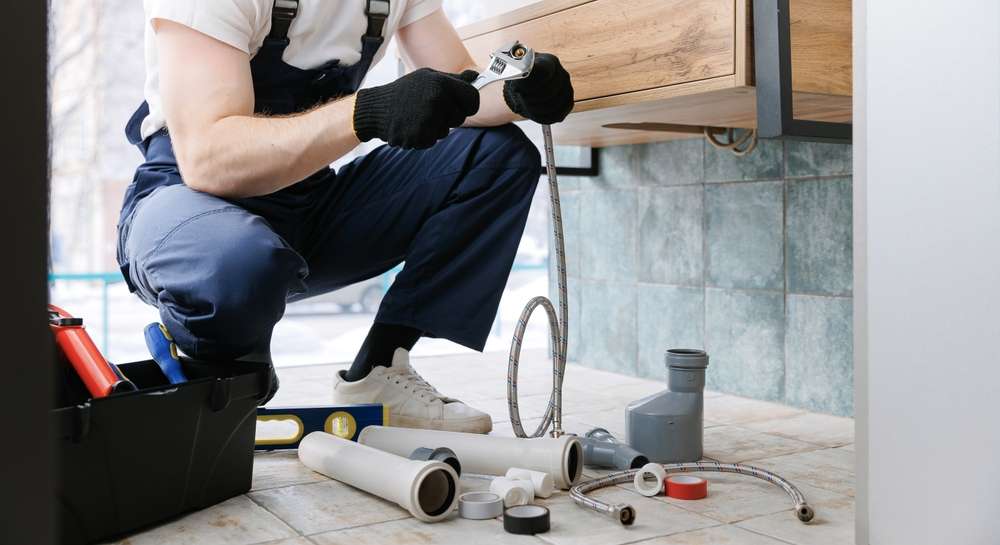Live in the Netherlands and speak English? Plumbing work might offer more than you expect.
If you're based in the Netherlands and speak English, plumbing work might be a path worth exploring — even if you haven’t considered it before. From repairs to new installations, roles vary by project type and experience level. Learn what kinds of opportunities are available and what employers typically look for in this trade.

What types of plumbing work might be available in the Netherlands?
The Dutch plumbing sector encompasses far more than basic pipe repairs. Residential work includes bathroom renovations, kitchen installations, and heating system maintenance — essential services in a country where older buildings require regular updates to meet modern efficiency standards. Commercial plumbing involves office buildings, hotels, and retail spaces, particularly in major cities like Amsterdam, Rotterdam, and The Hague where international businesses maintain facilities.
Industrial plumbing presents another avenue, especially in the Netherlands’ robust manufacturing sector. Port facilities, chemical plants, and food processing centers require specialized piping systems and maintenance schedules. Additionally, the country’s commitment to sustainable energy has created demand for professionals who can install and maintain geothermal heating systems, solar water heating, and other eco-friendly technologies.
Skills that could help you succeed in plumbing roles?
Technical competency forms the foundation, but successful plumbers in the Netherlands combine practical skills with adaptability. Understanding both metric measurements and European plumbing standards is essential, as Dutch systems may differ from those in other English-speaking countries. Familiarity with energy-efficient technologies gives candidates an edge, since Dutch regulations increasingly emphasize environmental performance.
Problem-solving abilities prove crucial when dealing with the Netherlands’ mix of historical and modern buildings. Many Amsterdam canal houses, for instance, present unique challenges due to their age and structural constraints. Digital literacy also matters — modern plumbing companies use scheduling software, GPS navigation, and digital invoicing systems that require basic computer skills.
How English speakers may fit into the trade industry?
The Netherlands’ international business environment creates specific advantages for English-speaking tradespeople. Many multinational corporations prefer contractors who can communicate directly in English, eliminating translation delays during project coordination. International hotels, corporate offices, and expatriate residential complexes often specifically request English-speaking maintenance professionals.
Dutch employers generally appreciate multilingual capabilities, and most Dutch professionals speak excellent English themselves. However, learning basic Dutch phrases related to plumbing terminology and safety procedures demonstrates commitment and facilitates smoother interactions with local suppliers and building inspectors. The country’s structured apprenticeship programs also welcome international participants who meet basic requirements.
What employers typically look for in trade professionals?
Reliability ranks highest among employer priorities in the Dutch plumbing sector. Punctuality and consistent quality work matter more than extensive experience, particularly for entry-level positions. Employers value candidates who show genuine interest in learning Dutch building codes and safety regulations, which differ from standards in other countries.
Professional certifications enhance employability significantly. While some international qualifications transfer through recognition processes, obtaining Dutch-specific certifications demonstrates commitment to local standards. Employers also seek candidates who can work independently after initial training, since many plumbing jobs involve solo service calls or small team projects.
Why consistent demand makes plumbing work worth exploring?
The Netherlands faces a persistent shortage of skilled tradespeople, creating favorable conditions for qualified plumbers. Government statistics indicate that construction and maintenance sectors struggle to fill available positions, partly due to an aging workforce and insufficient new apprentices. This shortage translates into job security and competitive wages for qualified professionals.
Climate change adaptation also drives demand growth. Dutch infrastructure requires ongoing upgrades to handle changing weather patterns, increased rainfall, and updated efficiency standards. The government’s commitment to carbon neutrality by 2050 means continued investment in building upgrades, creating long-term employment prospects for plumbers who understand modern, sustainable systems.
Understanding salary expectations and career progression in Dutch plumbing
Entry-level plumbing positions in the Netherlands typically offer annual salaries ranging from €25,000 to €35,000, while experienced professionals can earn €40,000 to €60,000 or more. Specialized skills in sustainable technologies or industrial systems command premium rates. Many plumbers eventually establish independent businesses, where earnings depend on client base and service specialization.
| Experience Level | Annual Salary Range | Typical Responsibilities |
|---|---|---|
| Apprentice/Entry | €25,000 - €30,000 | Basic installations, repairs under supervision |
| Experienced | €35,000 - €45,000 | Independent service calls, complex installations |
| Senior/Specialized | €45,000 - €60,000+ | Project management, advanced systems, training |
Salary estimates are based on current market information but may vary based on location, employer, and individual qualifications. Independent research is advised before making career decisions.
The plumbing trade in the Netherlands offers English speakers a practical pathway into skilled employment with strong growth prospects. While learning local regulations and some Dutch language skills requires effort, the combination of job security, competitive compensation, and diverse work environments makes this field worth serious consideration. Whether you’re seeking a complete career change or looking to transfer existing skills to a new country, Dutch plumbing work provides opportunities that extend well beyond traditional expectations.




